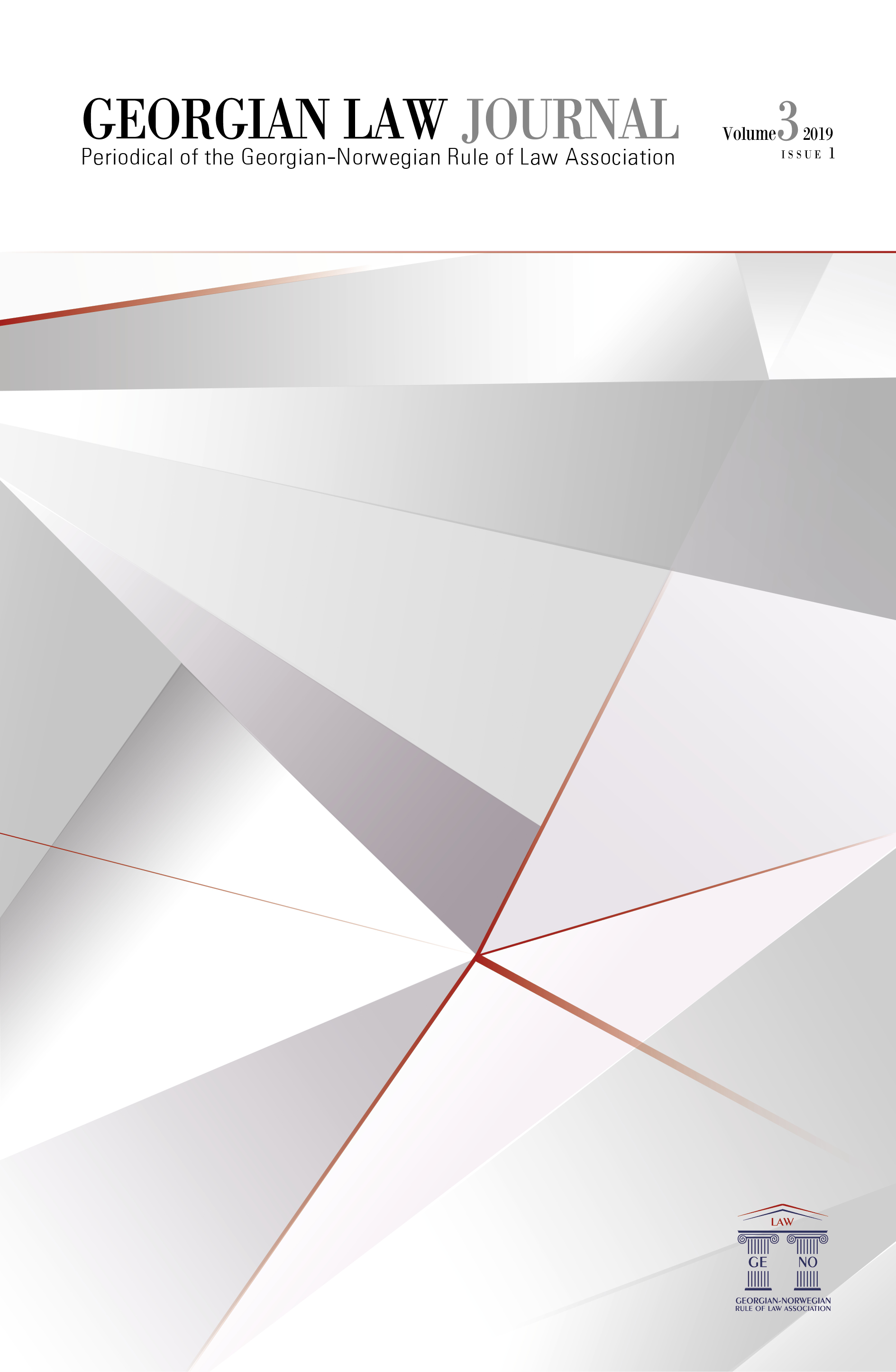This special issue of the Georgian Law Journal features the student essays from the second edition of Giorgi Margiani Annual Law Student Essay Competition held at the end of 2018. Our decision to run a special issue with student essays was determined by several factors. We were more than impressed by the pertinence of the topics chosen for the essays. Varying from
drug policy liberalization to consumers’ food safety regulation, they resonate well with our mission statement and capture a broad spectrum of loopholes that deserve greater attention. The topic of the annual seminar of the Georgian-Norwegian Rule of Law Association held in Oslo in February this year coincided with the topic of the winning essay. Nika Pirvelashvili embarked upon the role of the Constitutional Court of Georgia in first decriminalizing and later repealing all administrative sanctions for the consumption of Cannabis. His concise yet also a highly rigorous essay provides an account of the jurisprudence of the Constitutional Court on this matter as a set of sequential steps in line with, or perhaps even at the vanguard of emerging global trend. This trend, clearly identifiable through other developments elsewhere, consists of the various forms of institutional acknowledgment that the criminal law approach is inappropriate for being the main (let alone exclusive) tool for dealing with the “drug problem”. In this regard, Nika Pirvelashvili’s winning essay served as a baseline study for this year’s seminar in Oslo. In discussing Georgia’s drug policy from a broader perspective, the participants of the seminar – judges, activists, and legal scholars – highlighted some sharp discrepancies between the approaches of the Constitutional Court toward the consumption of Cannabis and of the government toward the drug consumption in general. One of the red threads of the seminar were multiple examples, outlined by various
speakers, pointing on the continuous prevalence of the criminal law approach by the government, resulting in counterproductive effects. The concern, echoed by the Norwegian experts participating in the seminar, turned out to be a common issue with multiple possibilities for building comparative law perspectives for addressing it. Other essays receiving honorary mentions within the competition include the one by David Gvenetadze on regulating food safety (second place) and Giorgi Tsaguria on corporate income tax models of Georgia and Estonia (third place). We also decided to publish two other essays that entered the competition. Originally written in English to enable our Norwegian colleagues to sit on the competition jury, they were translated into Georgian by the journal. Another decision made by the editorial board for this special issue is to publish these essays in their original, unedited versions. We think that providing our readers with the original account of the potential of the competing students as well as limitations that they might wish to address serves the objectives of the competition and this special issue. The readers are therefore advised to expect linguistic and other possible errors in the essays which are nonetheless interesting from this specific point of view.
As always, we hope that the readers will find it an enjoyable read and are open to comments and suggestions. These can be submitted by e-mail at editors@georgianlawjournal.org.
On behalf of the Editorial Board,
TEIMURAZ ANTELAVA
Read more





Add Comment